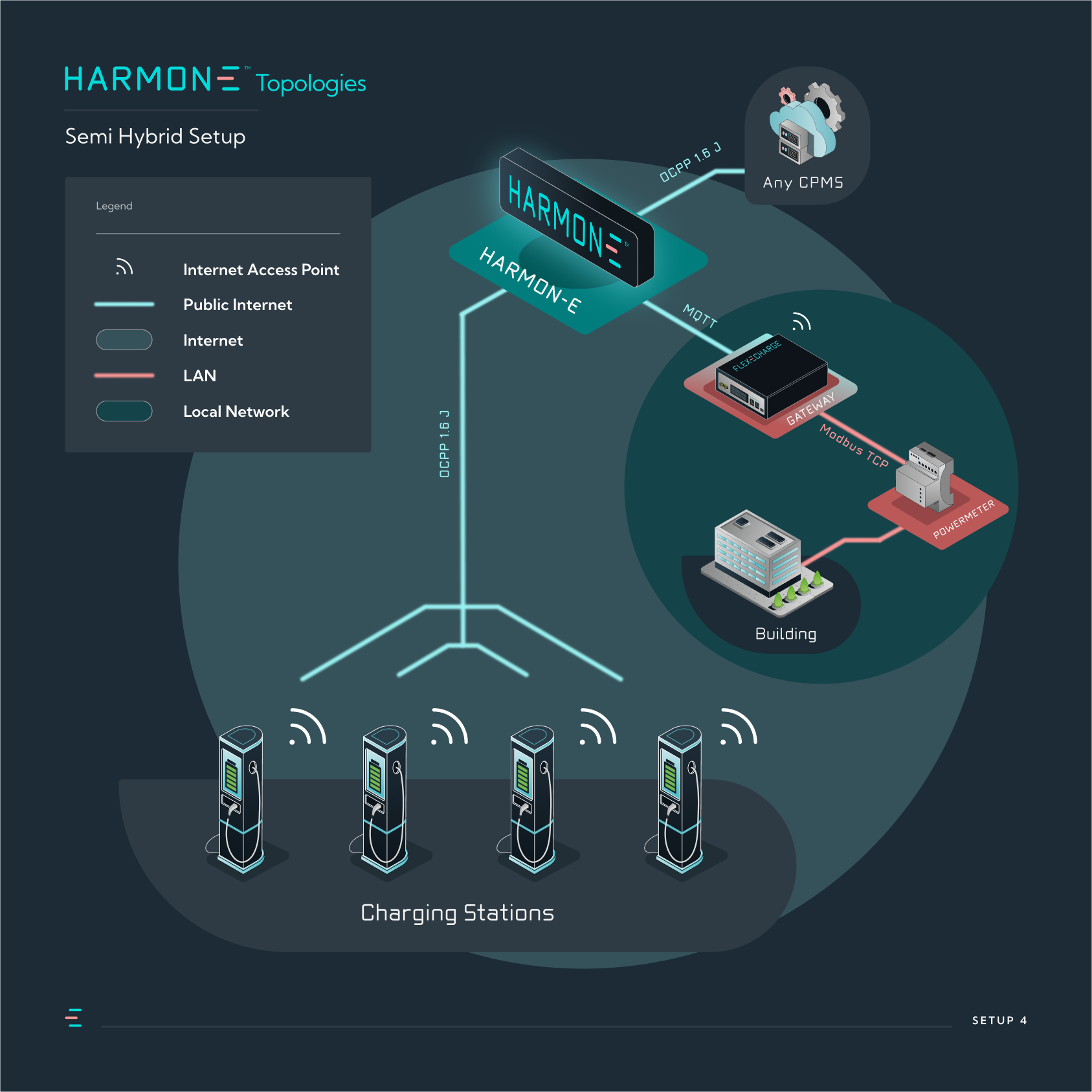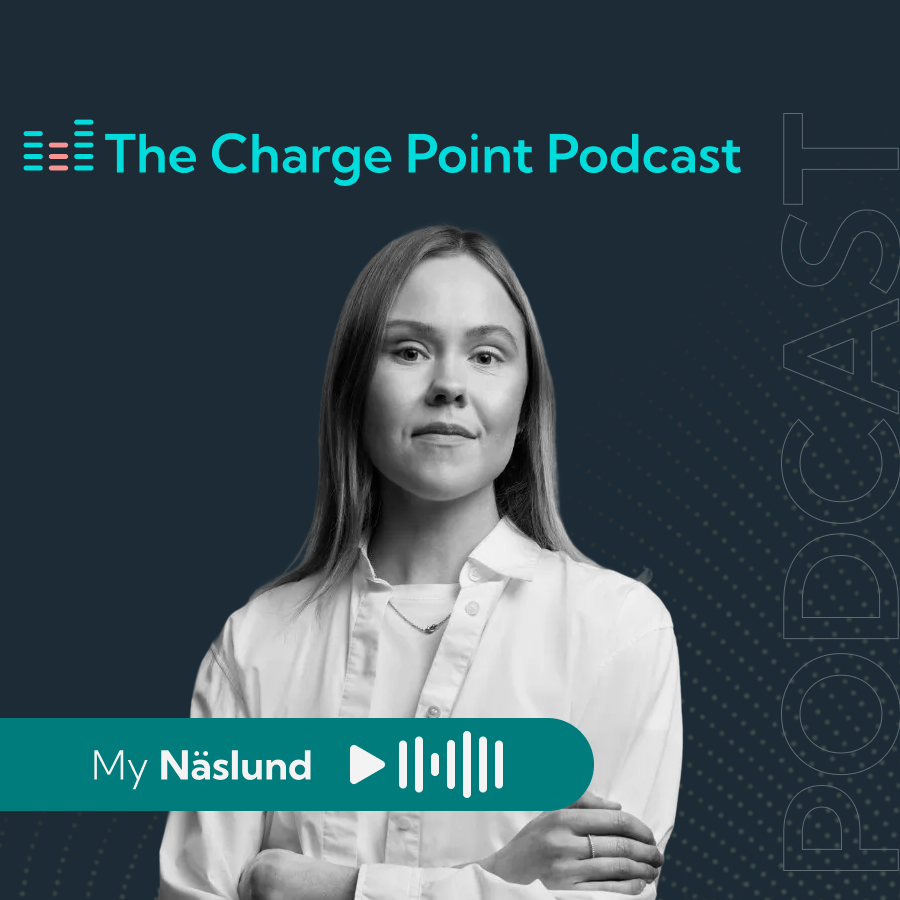Unlocking Resilience and Speed with Local EV Load Management

The local controller: The key to reliable, fast and autonomous EV charging
The secret to building an efficient and resilient electric vehicle (EV) charging infrastructure lies in one essential element: the local controller. This intelligent device enables Local Load Management (LLM), a system in which energy distribution decisions are made in real-time, directly on-site, without relying on an internet connection. It ensures ultra-fast responsiveness, operational resilience, and smooth integration with batteries, solar panels, and grid signals. If you're aiming to build a smart, scalable, and grid-conscious charging network, this is where to start.

The limitations of traditional Load Management
Many charging networks still rely heavily on centralised cloud systems to manage available power. In this architecture, all decisions are made remotely, typically by a Charge Point Management System (CPMS). This introduces latency, risks of connection loss, and security vulnerabilities—all critical issues when dealing with high-powered charging infrastructure.
Why Local Load Management is a game-changer
A Real-Time, On-Site Approach
Local load management brings intelligence closer to the ground. Instead of depending on the cloud, a local controller directly connected to the chargers and other assets (such as batteries or buildings) makes real-time decisions on energy distribution. This system operates entirely independently of any internet connection, enabling ultra-fast control loops that are crucial for effective energy management.
How does it work?
A dedicated controller continuously monitors the site's energy consumption using high-frequency sampling cycles (sometimes every second). It compares this consumption against thresholds set by the grid operator or the physical limits of the site's electrical connection. Based on the observed deviation (the "error"), the controller applies closed-loop control algorithms to dynamically adjust the power allocated to each charging station.
For instance, if the building's overall consumption suddenly increases (e.g. heating systems or industrial equipment), the controller will immediately and selectively reduce the charging power delivered to EVs to stay within the authorised power limit. This logic is based on well-established principles of control theory: error correction, minimal propagation delays (latency), and deterministic system behaviour.
This kind of approach enables precise, fast, and stable energy management—comparable to the systems used in aviation or other critical industrial environments.

Why local controllers are essential for CPOs
Local controllers offer unmatched resilience. In the event of a power cut or internet outage, the system keeps running. This is especially critical for high-priority sites such as public charging hubs, logistics warehouses, or electric truck and bus depots, where downtime is simply not an option.
Key benefits:
- Scalability: each controller adds local processing power, avoiding overload on a centralised system.
- Security: data and decisions remain on site, reducing the risk of cyberattacks.
- Privacy: sensitive information can be handled locally.
- Compatibility: controllers like HARMON-E by FLEXECHARGE integrate with all types of charging stations, solar panels, and analogue grid signals.
A growing consensus
Even from a regulatory standpoint, the trend is clear. Germany’s VDE, a leading authority in electrical engineering, officially recommends that control signals be managed locally. This isn’t just a matter of technological preference, but a core requirement for network stability and security. By integrating a local controller, you’re not only adopting best practice—you’re anticipating the standards of tomorrow.
Want to go further?
➡️ Watch our on-demand Optimise Masterclass

What is Load Management and why is it essential for EV Charging
Explore the essentials of advanced Load Management in this guide. Uncover the complexities of integrating EV charging systems with existing power grids, a critical challenge in energy management. Discover how solid Load & energy management solutions ensure an efficient, secure, and scalable charging infrastructure.


Interesting reads


January 2026: Record Funding and Network Expansion Drive Europe's EV Charging Evolution


December 2025 EV Charging & Fleet Infrastructure Update


How Battery Energy Storage and Virtual Power Plants Are Redefining CPO Profitability


How to Generate New Revenue Streams With Battery Energy Storage Systems (BESS) on EV Charging Sites

Get started with
FLEXECHARGE
Contact our team to learn more about what we can help you achieve with our open, vendor agnostic platform and powerful solutions.
